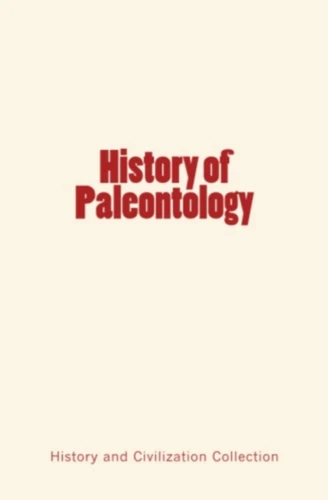History of Paleontology
Par : ,Formats :
Disponible dans votre compte client Decitre ou Furet du Nord dès validation de votre commande. Le format Multi-format est :
- Pour les liseuses autres que Vivlio, vous devez utiliser le logiciel Adobe Digital Edition. Non compatible avec la lecture sur les liseuses Kindle, Remarkable et Sony
 , qui est-ce ?
, qui est-ce ?Notre partenaire de plateforme de lecture numérique où vous retrouverez l'ensemble de vos ebooks gratuitement
Pour en savoir plus sur nos ebooks, consultez notre aide en ligne ici
- FormatMulti-format
- ISBN978-2-36659-301-3
- EAN9782366593013
- Date de parution19/10/2016
- Protection num.NC
- Infos supplémentairesMulti-format incluant ePub avec ...
- ÉditeurLE MONO (EDITIONS)
Résumé
What is life? This question gives a new interest to every department of science that relates to life in any form, and the history of life offers a most suggestive field for research. The paleontology took its origin in the mind of the first person who, finding something like a shell or a bone naturally imbedded in gravel or in rock, indulged in speculations upon the nature of this thing which he had dug out-this "fossil"-and upon the causes which had brought it into such a position.
In this rudimentary form, a high antiquity may safely be ascribed to paleontology, inasmuch as we know that, five hundred years before the Christian era, the philosophic doctrines of Xenophanes were influenced by his observations upon the fossil remains exposed in the quarries of Syracuse. From this time forth, not only the philosophers, but the poets, the historians, the geographers of antiquity occasionally refer to fossils; and after the revival of learning lively controversies arose respecting their real nature.
In this rudimentary form, a high antiquity may safely be ascribed to paleontology, inasmuch as we know that, five hundred years before the Christian era, the philosophic doctrines of Xenophanes were influenced by his observations upon the fossil remains exposed in the quarries of Syracuse. From this time forth, not only the philosophers, but the poets, the historians, the geographers of antiquity occasionally refer to fossils; and after the revival of learning lively controversies arose respecting their real nature.
What is life? This question gives a new interest to every department of science that relates to life in any form, and the history of life offers a most suggestive field for research. The paleontology took its origin in the mind of the first person who, finding something like a shell or a bone naturally imbedded in gravel or in rock, indulged in speculations upon the nature of this thing which he had dug out-this "fossil"-and upon the causes which had brought it into such a position.
In this rudimentary form, a high antiquity may safely be ascribed to paleontology, inasmuch as we know that, five hundred years before the Christian era, the philosophic doctrines of Xenophanes were influenced by his observations upon the fossil remains exposed in the quarries of Syracuse. From this time forth, not only the philosophers, but the poets, the historians, the geographers of antiquity occasionally refer to fossils; and after the revival of learning lively controversies arose respecting their real nature.
In this rudimentary form, a high antiquity may safely be ascribed to paleontology, inasmuch as we know that, five hundred years before the Christian era, the philosophic doctrines of Xenophanes were influenced by his observations upon the fossil remains exposed in the quarries of Syracuse. From this time forth, not only the philosophers, but the poets, the historians, the geographers of antiquity occasionally refer to fossils; and after the revival of learning lively controversies arose respecting their real nature.



